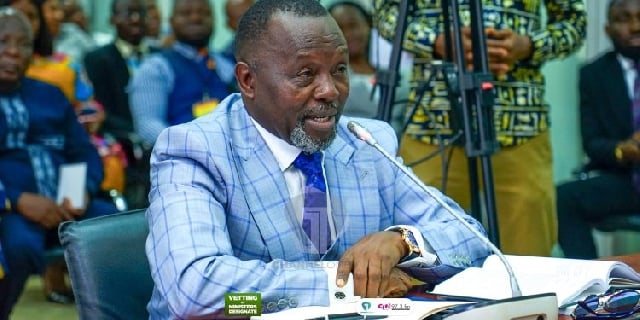The impending press conference by the Attorney-General and Minister for Justice regarding the discontinuation of legal proceedings against certain National Democratic Congress (NDC) officials has ignited a firestorm of controversy, raising fundamental questions about the integrity of the legal system and the government’s commitment to accountability. Critics argue that this decision sets a dangerous precedent, potentially undermining the rule of law and eroding public trust in the justice system. The central concern revolves around the perception that political considerations may have influenced the decision, thereby compromising the impartial application of justice. This controversy underscores the delicate balance between political expediency and the unwavering pursuit of justice, a balance that must be carefully maintained to preserve the integrity of democratic institutions.
The Attorney-General’s decision encompasses a range of actions, including discontinuing some cases entirely, withdrawing others from active prosecution, and entering a nolle prosequi in cases initiated by the previous administration. This multifaceted approach adds complexity to the situation, demanding a comprehensive explanation to address the specific legal justifications for each action. The public, understandably, demands transparency and a clear articulation of the legal principles guiding these decisions. Without a thorough and persuasive explanation, suspicions of political maneuvering will likely persist, further fueling public distrust. The Attorney-General’s press conference, therefore, carries the heavy burden of restoring public confidence in the impartiality and integrity of the legal process.
Shamima Moslem, Deputy Spokesperson at the Presidency, has attempted to preemptively address the growing unease by assuring the public that the Attorney-General will provide a detailed explanation. She emphasized that the press conference will serve as a platform to outline the legal basis for each decision, clarifying the rationale behind the diverse actions taken. This proactive communication strategy aims to quell public anxiety and demonstrate the government’s willingness to engage transparently with the concerns raised by the public and civil society organizations. However, the ultimate success of this communication strategy hinges on the Attorney-General’s ability to provide a convincing and legally sound justification for the decisions taken.
The controversy surrounding the discontinued prosecutions underscores the critical role of an independent judiciary and the importance of upholding the rule of law. Any perception of political interference in legal proceedings, whether real or perceived, can severely damage public trust in the justice system. For a democracy to function effectively, citizens must have confidence that the legal system operates fairly and impartially, without regard for political affiliation or influence. The Attorney-General’s actions, therefore, will be scrutinized not only for their legal validity but also for their potential impact on public perceptions of judicial independence and the government’s commitment to the rule of law.
The press conference is expected to draw intense scrutiny from a wide range of stakeholders, including legal experts, political analysts, and civil society organizations. These groups will be carefully analyzing the Attorney-General’s explanations to assess whether due process was followed and whether the decisions align with established legal principles. The public, too, will be keenly observing, seeking reassurance that justice remains a priority for the government. The Attorney-General’s ability to effectively address these concerns will be crucial in shaping public perception and determining the long-term impact of these decisions on the country’s legal and political landscape.
The current situation presents a significant test for Ghana’s commitment to transparency and accountability in governance. The Attorney-General’s handling of this matter, and the subsequent public response, will have far-reaching implications for the country’s democratic health. A clear, transparent, and legally sound explanation is essential to restore public trust and reaffirm the government’s commitment to upholding the rule of law. Failure to do so could further erode public confidence in the justice system and cast a shadow over the government’s commitment to democratic principles. The stakes are high, and the nation awaits the Attorney-General’s explanation with bated breath.


